- Payment Options
- Terms Conditions
- Maryland, USA
- info@cohebinternational.org
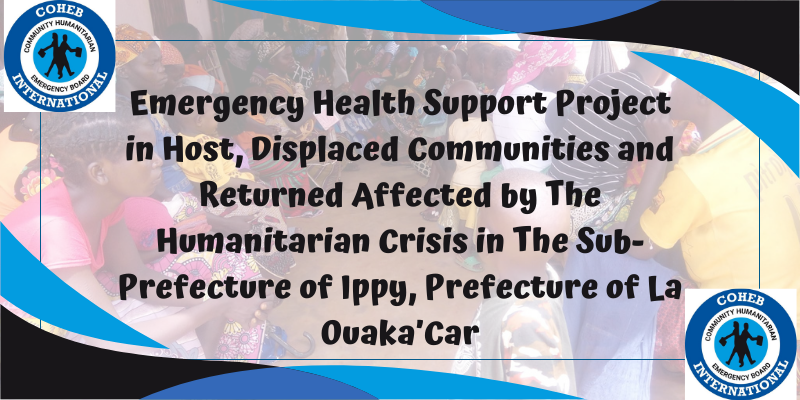
2021
From 1 to 15 August 2021, a team made up of members of the central coordination of COHEB and the Bambari District carried out a mission in DS Bam-bari, more specifically in Seko and Ippy and some flagship localities in order to strengthen the activities of the emergency health and nutrition project in the said DS, activities launched since mid-December 2020 in a security context too tense marked by the pre and post-election deadlines
-Training of 06 COHEB Psychosocial Officers in Bambari; -Training of 35 local care providers from 13 SD health units on nutritional PEC, epidemiological surveillance, classification of mental disorders and their clinical signs, mental health cards -Presentation and official launch of the project in Ippy and Seko -Recycling of 155 NOCs (from 32 SD locations) on mental health, mental illness, identification and referencing of mental illness cases, etc. -Endowment of all 13 targeted FOSAs with medicines -Rapid assessment in mental health and psychosocial support.
-Difficult movements in view of the operations to install State authority in the areas through which the mission passes, -Roads blocked by fallen trees, -Degraded roads and difficult to navigate during the rainy season
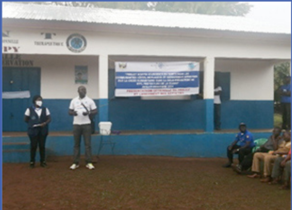
06 APS have been trained on topics related to Mental Health and Psychosocial Support. The three-day training was supported by WHO’s mhGAAP module as well as the module on prevention, Angry Stress Management and Post-Traumatic Stress Disorders, psychological counseling worksheet, psychological first aid, clinical psychology and its role in emergency response, VBG, maintenance worksheet and priority conditions. Practical exercises on applied psychotherapies were also carried out.
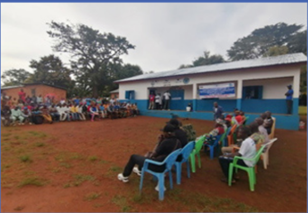
Chaired by the 1st citizen of the City of Ippy accompanied by the 1st Deputy to the Mayor, Mr. Ibra-him Moussa, the Chief Medical Officer of the District hospital, the health authorities, the Municipal Councilors, the local civil administrative authorities, this ceremony was the opportunity to present the project, the landlord, the targets, the main activities, the duration, ... and an opportunity to understand their proposals for the smooth running of the activities.
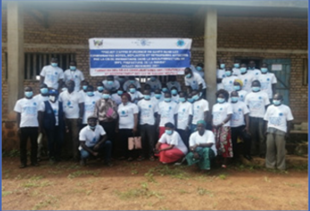
3.1 Mental Health Officer Training
After the opening ceremony a pre-test (Cfr: annex) was organized to collect the level of knowledge of the participants on the subject matter before getting to the heart of the matter a brief presentation was then made to give a clear view of national policy mental health in CAR (The National Plan and Policy ationale in CAR was voted in 2011, given the number high rates of mental health and dies psychiatric nowadays statics have five times).
This led to the development of the following themes:
Day 1:
- General concept of mental health care and psychosocial care.
- Etiology of mental health problems and psychiatric illnesses
- Symptoms of Mental Health Problems
- Introduction to WHO’s mhGAP-GIH Response Guide
- Depression (depressed mood disorder)
- Mania (Manic mood disorder)
- Bipolar disorder (bipolar or manic-depressive disorder)
- Psychoses
Day 2:
- Psychoses
- How to listen
- Epilepsy/seizures
- Developmental Disorder Child and Adolescent
- Behavioral disturbances in children and adolescents
- Drug or alcohol use disorder
Day 3
- Activities for the third day
- Dementia
- Self-Aggressive and Suicidal Conduct
-Other non-medically unexplained emotional complaints
- Post-Traumatic Stress Disorders, Stress Management and Anger
- Burn out management
- Explanation of Data Collection Sheets and Referencing Circuit
Prior to the completion of the training, an explanation of the data collection tools; recommendations; post-test and final evaluation of the workshop were undertaken.
3.2 Training of Community Mental Health Relays
Divided into two groups, held by DPAs assisted by a Psych clinician, they received two days of training on the identification of cases of mental illness, etiological factors, patient referencing circuit and practical exercises supported by the mhGAA module. They also worked on practical cases mixed with providers and psychosocial workers.
3.3 Recycling of AS and RECO into Health
55 local health workers have been retrained, on surveillance, PECIMA and PEC of common diseases in the area, with the support of MCDI
The RECOs and model mothers were also retrained, focusing on practical exercises on community activities (awareness raising and community mobilization), malnutrition screening and referencing cases, always with the support of SD members.
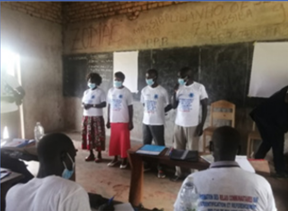
The 13 FOSAs covered were provided with WHO kits (16 Medical Basic Unit Cartons, 8 Malaria Basic Module Cartons, 36 Medical Supplemental Unit Cartons, 8 Pneumo A Kit Cartons, 8 Pneumo B Kit Cartons and 21 Malaria Supplemental Module Cartons), Unicef kits (310 Plumpy Nut Cartons), as well as additional medicines and materials purchased by Coheb.
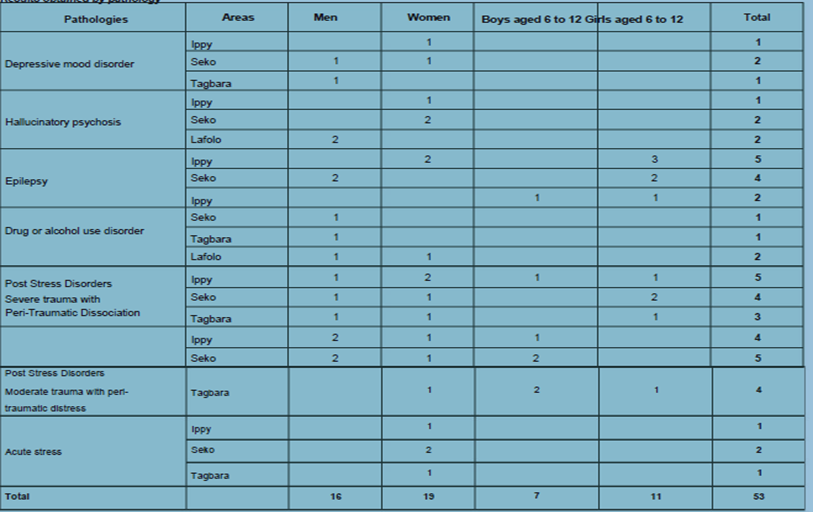
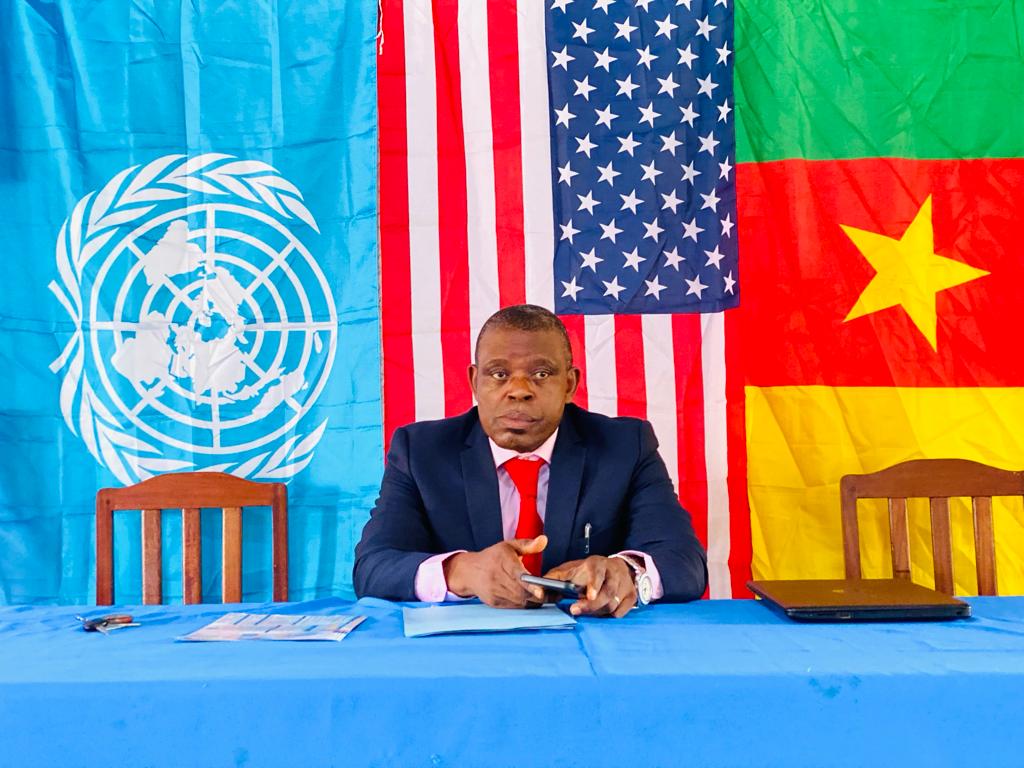

Multidimensional strategies in carrying hope for a more united world where the Love of God is shared through actions amongst affected individuals and communities all over the world.









